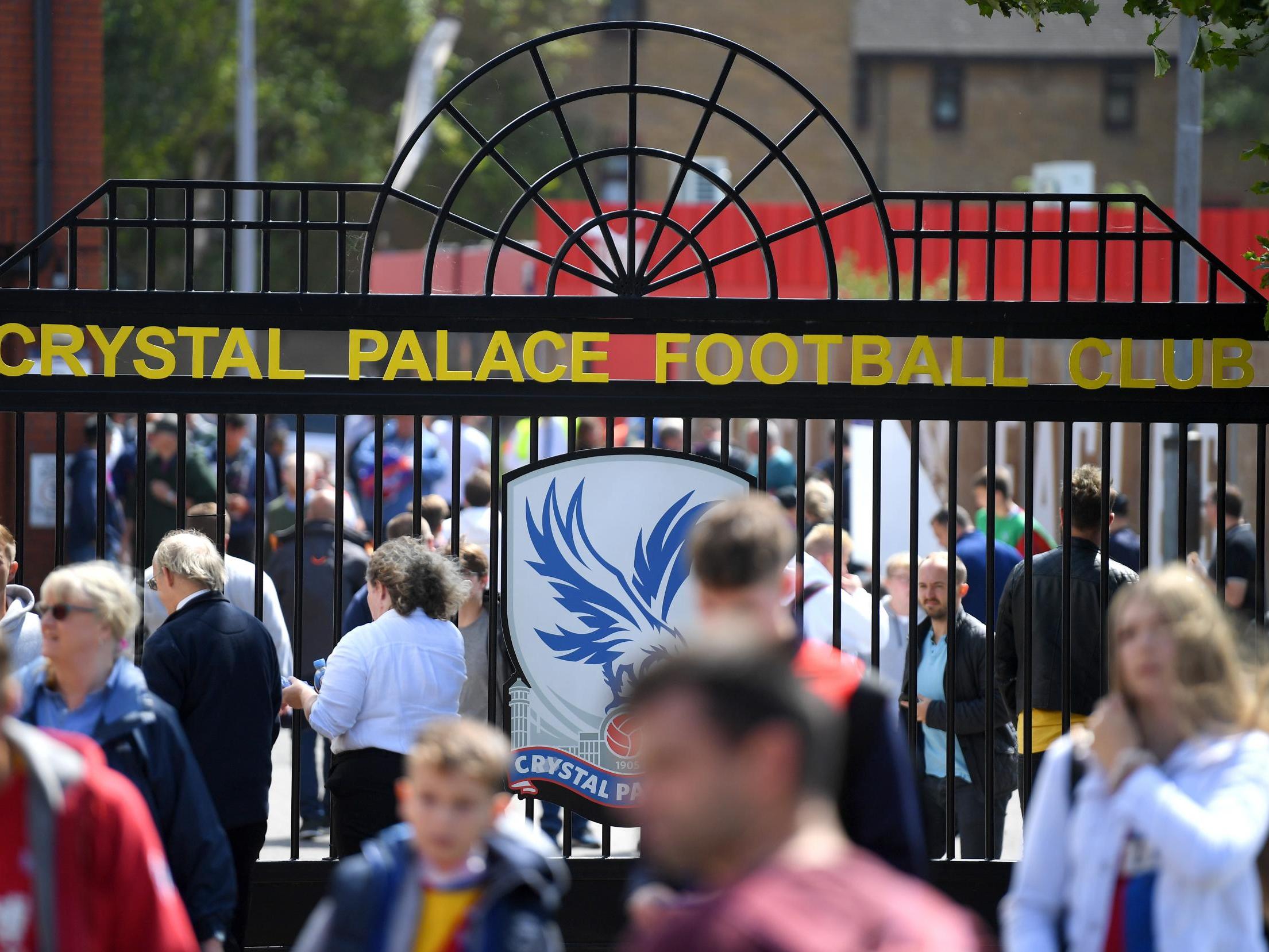Help The Hungry: How Crystal Palace’s foundation is helping vulnerable south Londoners during coronavirus
Palace for Life has had to adapt to continue providing support during the lockdown
At 3pm this Saturday afternoon, Crystal Palace were supposed to be hosting Burnley at Selhurst Park. On a usual matchday, just outside the weary stadium, supporters can always pick out a bouncy castle. It might seem insignificant, even a little incongruous next to one of the Premier League’s less gentrified clubs, but it’s quickly become a heartbeat of the club’s charity work, and every other weekend volunteers set up a stall to raise money.
For over 25 years, the Palace for Life Foundation has been a positive force that binds the community within a 10-mile radius of the club. Typically, 30 professional coaches dedicate time to teaching in schools as well as hosting various Thursday evening training sessions on local estates. Mentoring schemes provide regular one-to-one sessions for high-risk individuals identified by police or youth offending services, while targeted campaigns aid those with disabilities such as Down’s syndrome.
Their work has become integral to this corner of south London. But like every individual and organisation adjusting to the lockdown, coronavirus has forced the foundation to imagine new ways of maintaining a connection with those who require it most. “As a foundation, without question this is the toughest thing we’ll ever face,” says chief executive Mike Summers. “We know we’re not alone in that. It’s the same for every other charity under the sun. Coronavirus has taken away a whole raft of things we’d normally do.”
“There are a lot of young people cooped up at home for hours on end, who may have difficult backgrounds, where there might be money worries or they might not know where their next meal is coming from. There might be tensions in the household which could reach a boiling point so we need to come up with new ideas to engage with them.”
One new initiative the foundation has developed over the past few weeks has been an online gaming programme, where mentors play Xbox or PS4 with individuals to “keep up a rapport, give them advice and check on their wellbeing”. Meanwhile, coaches are still working at seven schools in the area kept open for the children of key workers, organising socially distanced activities and helping to give the teachers some light relief.
For the club’s 1,500 season ticket holders aged 70 or over, a hoard of club staff and ex-professionals have spearheaded a telephone routine to regularly check on each person’s health, deliver food parcels and pick up prescriptions.
“Even once the lockdown is over, the aftereffects will be huge,” says Summers. “A lot of families will be struggling financially and there’ll be more pressures than ever on young people. We’re in a privileged position to be linked with the football club and, having the power of the club out there, with great coaches and role models, can really help to make a huge difference.”
The players have been doing their part as well. Prior to the lockdown, Wilfried Zaha was a regular attendee of the foundation’s Kicks programme, which delivers free sports sessions almost every evening to keep teenagers out of trouble and off the street.
“Seeing friends who didn’t make it and some of their lives going down the wrong route, that pushed me to want to help as many people as I can really,” Zaha told The Independent late last year. “The reason why I help Palace for Life is because they’ve got things like Kicks. They’ll give you opportunities if you need work, they’ve got people to speak to, it helps people to feel like they’ve really got an opportunity in life.”
Zaha has already offered free use of 50 properties to the NHS. Several other players are also actively helping in the area and the squad recently made a significant collective donation to Age UK; a charity providing various methods of support for the elderly. There’s been smaller gestures too, such as privately arranging for vulnerable children to become matchday mascots when the season does eventually resume.

But one part of the foundation’s usual Saturday routine will go ahead as planned. The club’s super draw – a raffle where supporters can win signed memorabilia and various other prizes – which normally takes place at half time and helps to support the coaches who work for the club.
This week, it will take place “behind closed doors” and all the money raised will go directly to the Norwood and Brixton Foodbank. “Because of this unique situation, the most urgent need is frontline services who have immediate needs to help their operations run,” says Summers. “We’re still in the early stages of this right now and, as a foundation, we feel an extraordinary amount of responsibility. It’s more important than ever now to be able to help and inspire people.”
To find out more about Palace for Life, click here.
The Independent has launched a Help The Hungry appeal to help those going hungry because of the coronavirus crisis, teaming up with The Felix Project to deliver produce to community hubs in London boroughs.
We are also asking food charities across Britain to contact helpthehungry@independent.co.uk to tell us about your project. We are building a directory of ways that our readers can help the hungry in their area – through money, volunteering and food donations.
Join our commenting forum
Join thought-provoking conversations, follow other Independent readers and see their replies
Comments
Bookmark popover
Removed from bookmarks